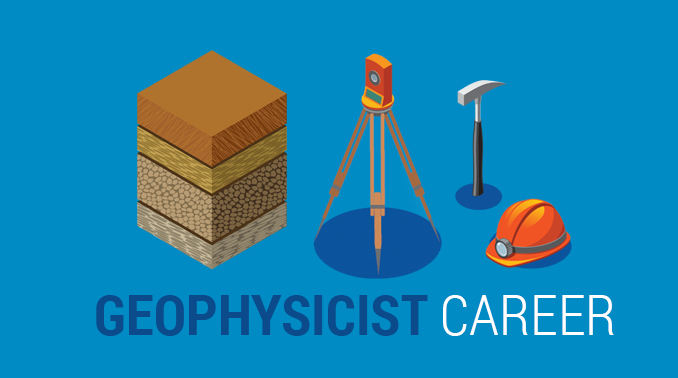All Categories
Featured
Table of Contents
What Are Geophysical Surveys & Why Do They Matter in Hocking Aus 2020

Other possible geophysicist majors that aren't geophysics or geoscience consist of: Climatic sciences and meteorology Chemical and physical oceanography Earth science Environmental science Hydrology and water resources science Products science By earning any geophysicist degree, and by taking the required geology courses, you must receive an entry-level position as a geoscientist or geophysicist.
Eventually, trainees must find out: a branch of geology that looks at the different elements of minerals, including chemical structure, internal crystal structure, and physical residential or commercial properties. the study of rocks and the procedures and conditions that form and transform them gradually. There are a couple of neighborhoods in this branch of geology, consisting of igneous, metamorphic, and sedimentary rocks.

This field examines structural rock functions such as cleavage, faults, joints, and little folds. They should likewise discover the computer system abilities required to: analyze information create digital models and maps operate geoscientists' software Students should likewise make the most of all chances to get real-world experience. Ambitious geophysicists should anticipate to hang around knowing: in the class in the field in laboratories Certainly, skills taught in the class are extremely important for aspiring geophysicists.
Geophysicist in Nedlands Aus 2022
Geoscientists invest a lot of their time outside when working in the field, so they must have "outside skills" like outdoor camping and operating boats, aircraft, and other vehicles. Because they invest so much time in remote areas, it's vital that geophysicists likewise have the physical stamina to carry necessary devices on their hikes to places of study.
The task offers: a high typical and top incomes a high rate of individual complete satisfaction amongst geophysicists low work tension positive job outlook More details on incomes potential and job outlook is detailed listed below. For trainees looking to land an entry-level function as a geoscientist or geophysicist, it takes four years, or the time required to finish a bachelor's degree in geophysics or a related discipline.
Some research positions in geophysics require doctoral degrees. Also, if you prepare to teach at a college or university, you need to earn a Ph - Geophysical Survey Equipment - Ground Penetrating Radar in WA 2020. D. in geophysics or a related field. The time it requires to earn a Ph. D. varies by institution and program, but it generally takes 4 to six years beyond the bachelor's degree.
What Does A Geophysicist Do? in Mt Richon Oz 2020
In reality, many companies require prospects to have a bachelor's degree in geophysics or a carefully related discipline for all entry-level positions. And, in many cases, companies require a master's degree. As a result, there's no chance around the degree requirements for becoming a geophysicist. A lot of employers will anticipate or require a practicing geologist to be certified for positions beyond those at the entry level.
Currently, 31 states require licensing for geologists, although licensing is not constantly required, especially for entry-level work. The states that do issue licenses utilize the Basics of Geology Test (FGE), which is administered through the National Association of State Boards of Geology (ASBOG). Now that you understand which degree for geophysicist tasks you require, you'll require to land a job, and it is essential to learn just how much money you can make in this profession.
According to BLS, the typical yearly wage for geoscientists is $93,580. According to BLS, particular industries provide greater salaries for geoscientists, and in some cases, they use higher-than-average incomes.
What Are Geological, Geochemical, in Innaloo Aus 2020
Mining, quarrying, and oil and gas extraction provides over $32,000 more yearly than the typical annual wage for this profession. The federal government, too, uses over $10,000 more in profits than the nationwide average for geoscientists. In addition to market type, geographical place can significantly impact profits for this profession.

The top-paying states and their annual mean salaries, according to the BLS, include: Texas $166,720 Oklahoma $149,630 Pennsylvania $120,590 Hawaii $120,130 Colorado $107,260 These 5 top-paying states use much greater salaries than the average for this profession. Salaries for geoscientists in Texas are over $73,000 greater than the national average.
It should come as no surprise that many of these high-paying locations remain in Texas and Oklahoma, however some are discovered in California, Louisiana, and Colorado. The top 10 highest-paying city areas for geoscientists are: Houston-The Woodlands-Sugar Land, Texas: $188,400 Tulsa, Oklahoma: $186,490 Midland, Texas: $167,040 Odessa, Texas: $147,080 Oklahoma City, Oklahoma: $145,350 Bakersfield, California: $130,080 Urban Honolulu, Hawaii: $124,470 New Orleans-Metairie, Louisiana: $121,030 Washington-Arlington-Alexandria, DC, VA, MD, WV: $120,180 Denver-Aurora-Lakewood, Colorado: $116,910 For some geoscientists and geophysicists, residing in a metro city is not as appealing as living in a smaller sized neighborhood.
Latest Posts
Bachelor's Degree In Geophysics - Degrees & Programs in Woodbridge Oz 2023
Geophysical Methods in Leederville Aus 2022
Job Profiles : Geophysicist Physics in Northbridge WA 2020